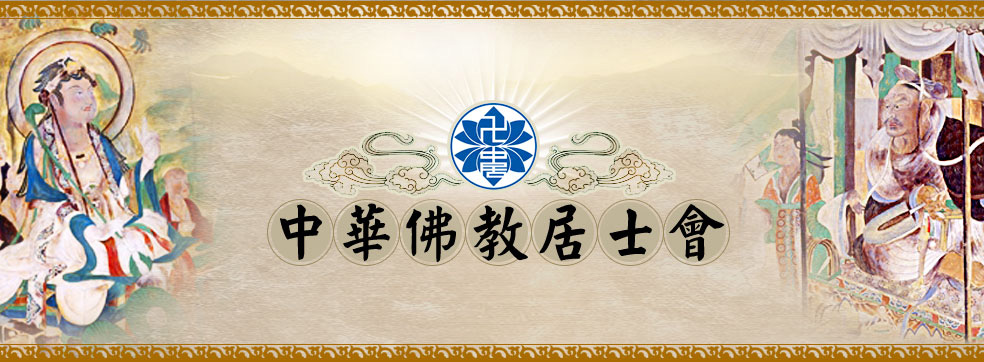世界佛教企業論壇論文輯
主題演說:佛教的企業化經營--心定法師
2015-09-18
佛教的企業化經營
心定法師
主席,各位長老,各位長官,各位代表,各位觀察員、各位貴賓,各位女士先生們,大家吉祥!今天感到非常榮幸,代表星雲大師,應邀在這裡,作一簡短的主題演說。感謝第二屆世界佛教企業論壇主辦單位暨承辦單位,給予我這個機會。
這次大會主題是:佛教與企業:以佛法經營企業,以企業服務社會:意義非常重要。原本佛教以僧團為主,寺院就是學校,對於社會的道德教育,二千五百多年來,就一直承擔着這個使命。同時,在歷史上,寺院也是扮演着慈善機構,每逢饑荒或各種天災人禍,寺院是避難所,也是收容所,也是救濟院。
中國或台灣的佛教,都受到唐朝百丈禪師創立叢林寺院的清規影響,一千多年來,寺院就是企業的經營與管理,所謂兩序大眾,四十八單職(執)事,例如頭單知客,就是現在的公關主任;頭單書記就像主任秘書一樣。
隨著時代的潮流,各國政府訂立不同的社團組織辦法。所以台灣在最近二十多年來,成立很多佛教社團,有很多文教基金會,有很多社會福利慈善基金會。
不論是社團組織,或財團法人,都有組織章程,設立宗旨,工作職權,責任與義務,人事安排,財務管理,可以說就是現代的企業管理。
由於有制度化,有組織,所以更方便與更廣泛的籌款,或為某一事業籌款,或為急難救濟籌款。台灣在全世界有很多第一,如高爾夫球,發明獎等,另外,依台灣這幾十年來,佛教如同進入黃金時代,佛教界對於全世界的各種急難救濟,應該也是全球第一!
所謂佛教的黃金時代:例如佛教界所創辦的大學就有好多所:華梵、慈濟、玄奘、佛光、法鼓、南華等。國小,中學,高中也很多。佛教界創辦的電視台,最少有六台以上:如華藏、人間、大愛,生命、法界,佛衛等;慈善的部分:有敬老的安養院,照顧兒童的,有很多的育幼院。
現在台灣的佛教寺院或團體,都有很好的組織與管理。如全世界各地發生災難,常常都是台灣的佛教團體或佛教的慈善機構,搶在第一線,以人力、物資、財力,去做賑災救援的任務,所以義工也是最多。
佛教的各種基金會,都是非營利機構,運用社會群眾的力量,來幫助社會貧困或急難。台灣的佛教界已經做得很多,可以令人隨喜讚歎!
在台灣目前有一個特別的基金:公益信託星雲大師教育基金:主要是表揚清淨的媒體人士,模範教師,對文化有特別貢獻的人士。利用這個機會向大家報告。
如果說企業經營與管理,我有二點淺見:
一、因果管理,一個法人或團體,一定有人事及財務,對於這些,如果能具有因果觀念,對財務不敢起貪念,對人,不會有侵犯人的言行,不會對人有惡劣的態度;對事情會有責任感,一切都有因果的。
二、功德管理,佛教的寺院,需要有信徒服務,做義工,是自動自發的,因為希望得好人緣,將來會有很多助緣,別人不喜歡做的,就撿來做,做越多,功德越大、越多。這也是從深信因果,才會任勞任怨。
一般營利的事業,領薪水,領工資,一天工作幾小時,一星期工作幾天,一年有多少假期,有多少福利?計較得清清楚楚。非營利機構,如寺院或佛教團體,有活動,爭相參與,需募款,爭相捐獻,他們希望得功德,得福報。如果將信徒或義工,依能力或時段,做好資料檔案,依不同活動項目,召集參與,或做職前培訓,事後做檢討改進,或依功行賞,象徵性的鼓勵。台灣很多佛教團體,這方面的組織管理,都做得很好。否則台灣佛教不可能達到當今的黃金時代。
台灣整體性來說,佛教對於社會人心的淨化,社會褔利的貢獻,可以說:成果輝煌!在理論上、方法上,要更加的發展,有賴於各位代表,提出更多更好的寶貴意見,讓全世界的佛教團體,做出更多服務社會的貢獻。祝論壇圓滿!大家健康!吉祥如意!謝謝!
The Administration of Buddhist Organization with Principle Business
by Ven. Hein Ding
Dear Chairperson, venerables, delegates, observers, and all honorable guests, ladies and gentlemen: good morning!It’s my honor to have been invited here to make a short speech on behalf of Ven. Master Hsing Yun of Fo Guang Shan. My thanks go to the organizer and co-organizers of the Second World Buddhist Business Forum in giving me this opportunity to be present here and to give a few thoughts on this occasion.
Theme of the forum is Business through Buddhism: Management and Mission. The objective is to apply Buddhist Dharma in operating business, and to manage enterprises in service of society. This carries with significant meaning. Buddhism is based mainly on sangha and monasteries function as schools, taking the responsibility of promoting moral education to the public over the past 2500 years. They also function as charitable organizations – such as refuges, shelters, or relief centers – in times of natural or manmade disasters.
Following the monastic regulations laid down by Chan Master Baizhang in the Tang Dynasty, China, for more than a thousand years ago, monasteries in China and Taiwan have been operated and administered like enterprises. They have twofold assemblies and forty-eight office-bearers. For example, the head receptionist monk is like today’s chief of public relations, and the head clerical monk is like the secretary-general.
Following the tide of times, the governments of all countries have stipulated various codes in governing non-profits. In this regard, many Buddhist organizations, cultural and educational foundations, and social welfare foundations have been established over the past two decades in Taiwan.
No matter it is non-profit organization or foundation corporate, they all have their own constitutions, aims and purposes, duties and powers, responsibilities, personnel management, and financial management. In this sense, they, in reality, follow enterprise management in modern style.
Benefitted from their systematization and organization, they are highly efficient in raising funds for various purposes like relief efforts. Taiwan Buddhism in its prime time is believed to have ranked first among their counterparts worldwide regarding the amount of donations she has made over the past several decades.
Why today’s Buddhism in Taiwan is in its prime time? Buddhism has founded a number of universities in Taiwan, i.e. Huafan Univ., Tsuchi Univ., Hsuan Chuang Univ., Foguang Univ., Dharma Drum Univ., Nanhua Univ., etc. Buddhist community also founded elementary schools, high schools, and senior high schools. Moreover, there are TV stations such as Hwazan TV, Buddha’s Light TV, DaAi TV, Life TV, Universal Culture TV, Buddha Compassion TV, etc.. Also important are the many elderly homes and children’s homes they have built.
The various foundations of Buddhism are non profit-making. They resort to the joint efforts of society in providing relief aids to those in dire need. Their contributions are highly appreciated.
There is a special fund that worths our mention: Venerable Master Hsing Yun Public Education Trust Fund. Its aim is to salute and acclaim the kinds of people who can serve as our examples: the reporters, teachers, and people who have special contributions to culture. Let me use this opportunity to make two points about business operation and administration as follows:
1. Management that bears causal conditions in mind: If an organization knows about the causal conditions, it would not make any fake budget proposal, infringe upon the right of speech of others, and have a mean behavior and an irresponsible manner towards others, as these would invite a bad karma.
2. Management that encourages merit-making: The volunteers who serve the devotees in a Buddhist monastery are all unprompted, as what they wish to get is a good human relationship. With this in mind, they do what others regard as nuisance and aversion without slightest complaint. In this way, they, having a strong belief in karma, earn greater merits than others.
People working in profit making organizations cannot set their mind free and concern very much about their salaries, work hours, number of day-offs, and fringe benefits. On the other hand, in non-profit making organizations such as monasteries, devotees and volunteers are pleased to contribute their labor and money in return of blessings and merits. Many Buddhist organizations establish a good volunteer database, provide vocational training and orientation, practice post-evaluation after events are carried, and establish reward system to encourage more people to become volunteers.
It can be said that Buddhism has high achievements with regards to the purification of human minds, and the provision of social welfare! But there are always rooms for improvement. I hope you, our delegates, can offer your productive suggestions so that all Buddhist organizations aiming to serve society can learn and benefit from them.
I sincerely hope the forum a huge success. Good blessings to all of you. Thank you~

